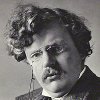“ For the brave man appears rash relatively to the coward, and cowardly relatively to the rash man; and similarly the temperate man appears self-indulgent relatively to the insensible man, insensible relatively to the self-indulgent, and the liberal man prodigal relatively to the mean man, mean relatively to the prodigal. ”
Aristotle, Nicomachean Ethics (c. 334 BC - 330 BC). copy citation
| Author | Aristotle |
|---|---|
| Source | Nicomachean Ethics |
| Topic | meaning self-knowledge |
| Date | c. 334 BC - 330 BC |
| Language | English |
| Reference | |
| Note | Translated by W. D. Ross |
| Weblink | http://classics.mit.edu/Aristotle/nicomachaen.mb.txt |
Context
“as the equal is greater relatively to the less, less relatively to the greater, so the middle states are excessive relatively to the deficiencies, deficient relatively to the excesses, both in passions and in actions. For the brave man appears rash relatively to the coward, and cowardly relatively to the rash man; and similarly the temperate man appears self-indulgent relatively to the insensible man, insensible relatively to the self-indulgent, and the liberal man prodigal relatively to the mean man, mean relatively to the prodigal. Hence also the people at the extremes push the intermediate man each over to the other, and the brave man is called rash by the coward, cowardly by the rash man, and correspondingly in the other cases.”
source



